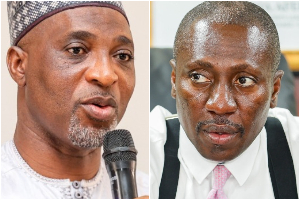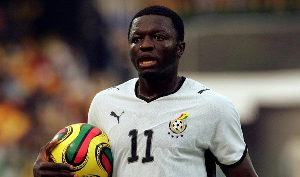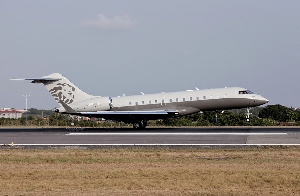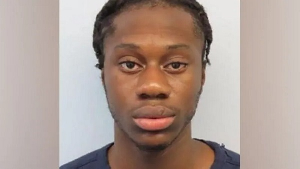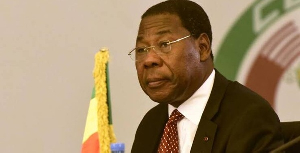Stammer and woefully get Everything Wrong
President Barack Obama found a growing hope and confidence in Ghana’s institutuins so he made a whistle stop in Ghana on 10th July 2009 to encourage for further strengthening of national institutions. “’We’ don’t need strong leaders; what ‘we’ need is strong institutions” The American President did not talk to Ghanaians and Ghana’s Parliament on a ‘them’ and ‘us’ basis by using objective clauses and referring to Ghanaians as you Ghanaians needing strong institutions; rather, he included himself as a Ghanaian, as an America partner in democracy and the ‘civilised’ world as a community striving for fairness, justice and equality. John Evans Atta Mills had barely been sworn-in as President of Ghana who proclaimed himself to be ‘Father for all Ghanaians’ and went ahead to form and established what he called as ‘National Peace Council’. The composition of this institution and their selection criterior remains in arcanum to most Ghanaians to this day.
Some communities to the north of Ghana have often been in internecine wars and conflicts usually over trivial matters that could easily have been solved had our institutions been that strong and fair, others have been of more grievous nature involving chieftaincy factions which could similarly and equally have been solved by fair minded strong institutions. Aside these above mentioned fracas, other communities have seen relative peace over several decades. The formation of a Peace Council institution in regard to the above as a way forward to forstall future conflicts as well as resolving present and past conflicts would have been in the right direction as a most welcome idea. These notwithstanding, a so-called National Peace Council of whatever composition has never made a single statement of proposal, neither have they ever sat on the most pressing, controversial and seemingly irresolvable but resolvable Yendi skin conflict, a conflict that has persisted for well over 60 years. Other minor community conflicts have cropped-up ever since the formation of this so-called NPC yet hardly does any well meaning Ghanaian hear of their involvement in joining other relevant institutions in mediation for calmth. What then does the NPC stand for? What are their aims and objectives? What is their understanding of ‘Peace’? How do they promote, establish and foster Peace and what modalities do they apply to bring Peace?
The relevance of the NPC could in fairness also be felt in dealing with other institutions that abuse their powers either through omissions/negligence of their duties, commissions/malfeasance or misfeasance of their public duties to ensure fairness to all in Ghana, citizens, straigers and visitors alike. Yet since the NPC has an ambiguous job description ascribed to them and only have a particularly prescribed interest that has no relevance to promoting Peace in Ghana, they can only see what is stained inside their looking-glasses, smell only the scent that they have been conditioned to smell and react to, hear the tunes that they are made to love to enjoy hearing, stentor and trumpet-out grievances not for the general good of all but for particulars whereby they would come into public even in pyjamas or bath towels wound around their waist to make emergency statements. National Peace Council sees nothing wrong with Police negligence when other equally-regarding citizens equally entitled to protection are abused and brutalised by their favoured group. NPC, the Police and other security forces etc see something wrong with statements made by an unfavoured group and so rushe to make emergency statements of condemnation but see nothing wrong with their favourites who emerge in amulets-riddled battle smock, indicative of war readiness. To this, they see, hear and say nothing because either they stammer badly and have not gathered enough gas to push their statements out or that they have developped aphonia by earlier shouting in emergency. NPC and other concerned institutions of State see nothing wrong with a wanton command by whosoever to parade National arsenal and armoury across the country. NPC and others see nothing wrong with political thuggery, gangsterism, hoolinganism and the baculine approach of some identified rubble-rousing group against all others irrespective of. The police especially had glaucoma in their eyes so could not see anybody to make any arrests for breaching public order rules.
What then does it take to promote Peace? Naturally, it takes avoidance of conflict through encouraging and maintaining a culture of fairness and justice to promote Peace both in situations where a conflict has occurred or is nigh, and this can only be achieved through mediation by well-informed elders or through appropriate juridical processes in the established Courts of law. If so, then how does the National Peace Coucil see mediation and the law Courts and what image do they cast for these approaches to peaceful settlement of disputes? From their conduct, the NPC see all jural institutions as monstrous and dangerous mosters. They have portrayed themselves as ant-mediation, anti-intervensional and anti-Court and juridical. In effect, the NPC is amorphous in shape, in thought and ideas, in aims and objectives, in functions and foresight. Their understanding of ‘Peace’ need to be redifined and knocked into their brains so they need proper erudition to merit their so-called titles with which they are encumbered, with little significance as manifested by their mis/malperformance. It is rather unfortunate that Ghanaians have come to acculture themselves with a strange fear for people who are wont to apply a jural process to seek redress for wrong once done rather than taking up arms and combat. Such people are referred to scornfully as litigious and shunned. The person who is combat-ready for a similar wrong done as a way of claiming justice is hailed as a hero and a no nonsense man. This latter approach to seeking justice in the ‘might is right’ mentality is what makes the difference between civilised people as in Western Europe and North America etc and the savage stoneage mentality of others, typically of African and developing countries of lesser development that have lost their goal and keep wandering about without finding what they are looking for.
The following could be tips for the National Peace Council if they truly are for peace and not real hipocrites hiding behind the veil of peace. All of them are presumed to be parents so they must know that children live what they learn. Therefore taking themselves as parents of Ghana by appointment whiles Ghanaians represent their children, the following would go for them:
? If a child lives with hostility, he learns to fight
? If a child lives with fear, she learns to be apprehensive
? If a child lives with envy, he learns to be covetous
? If a child lives with criticism, she learns to condemn.
? But if a child lives with fairness, he learns justice
? If a child lives with tolerance, she learns to be patient
? If a child lives with security, he learns to feel confident
? If a child lives with honesty, she learns to be truthful
? If a child lives with encouragement and recognition, he learns to have a goal
? And if a child with approval and friendliness, she learns to love the world.
Friendliness and acceptance as the mainstay of world love is the reason why the American President, the most powerful man on earth moved down to Ghana in 2009 to encourage strengthening of our State institutions for Ghana to move ahead amongst developing countries as a beacon of hope for democracy. It is rather unfortunate that President Obama came to waste his time and his voice delivering a brilliant speech with a cohort of non-starters in democracy, led by the worst hipocrite the world can ever think of in the person of John Mills as then President of Ghana. Obama stressed on the possessive pronoun ‘we’ in his statement ‘We need strong institutions’ by reason of world love; a world envisaged for fairness and equiparity which includes Ghana but not a world of partiality, envy and paranoia; not a world of injustice and insecurity with little or no confidence in even people living next door to us in our communities.
With eyes still focussed on the so-called National Peace Council that had been presumed to cause to make a difference in the operational functions of Ghana’s institutions for whom the above ten statements go, I wonder the nature of training and teaching they give to their own children at home. From the above, the NPC must either be up and doing or bow down their heads in shame as the most hopeless, useless and tracklessly confused institution that does not deserve to exist. If up and doing, the National Peace Council can be seen and recognised in a similar capacity enjoyed by ‘Medicine sans Frontiers’, with unlimited powers and capacity to intervene and advice any and every institution that matters in promoting Peace through fairness. They can cause to make a difference to merit their establishment else they must resign and not waste public time and money. Without justice, Ghana can never develop as reasonably expected.
Adreba Kwaku Abrefa Damoa; (London, UK)
Opinions of Monday, 28 January 2013
Columnist: Damoa, Adreba Kwaku Abrefa


